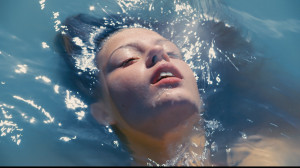By Daniel Janssen
Staff Writer
Every year, there are a handful of movies that receive an incredible amount of buzz in the world of film. This year, at the top of that list, there was La Vie d’Ad èle or Blue is the Warmest Color for the Anglophone world. The film follows the 17-year-old Adèle on her way to exploring adulthood and love after she has met the blue-haired Emma. There are few films that grasp the idea of love and sexuality so distinctly and fearlessly as La Vie d’Adèle, but unfortunately, the winner of the Cannes Palme d’Or provides more questions than answers.
èle or Blue is the Warmest Color for the Anglophone world. The film follows the 17-year-old Adèle on her way to exploring adulthood and love after she has met the blue-haired Emma. There are few films that grasp the idea of love and sexuality so distinctly and fearlessly as La Vie d’Adèle, but unfortunately, the winner of the Cannes Palme d’Or provides more questions than answers.
Before entering the cinema for a screening of a three-hour coming-of-age film about lesbianism, I knew that I would be in for something different – a film that receives much appraisal at the French Cannes film festival often sets up such expectations. La Vie d’Adèle absolutely lives up to the reputation of the festival, featuring hours of stylistic drama so close to your face, that you can barely avoid the emotional impact of the film. Every shot is a close-up, every erotic scene is unbelievably passionate and every teardrop is genuinely difficult to watch. Thus, the art of this film is that none of these elements ever reach a status of “overkill”. In such a heavy drama, the line between “dramedy” and overly dramatic film is often blurry, but La Vie d’Adèle draws a beautiful border between the two.
However, the film does little with its controversial content other than the director toying with his audience: there is no true message of the film, and when it starts to develop one, the storyline skips a beat. After the film, it feels like you have been watching two movies back-to-back: both incredibly strong, but entirely different in terms of pacing and structure.
When the film does try to articulate its themes, it is too easy, almost a given. Every idea or interpretation that the audience can develop on his or her own has to be given an answer or set place in the end, which leads to a surprisingly anti-climactic finale. In terms of its overall story, the ending sequence was well done – but leaving a little up in the air can stimulate the viewer just enough to really start thinking about the controversy of the subject. There is too little meaningful commentary and too much focus on the tale of Adèle to have the film last three hours, and that definitely takes away some of the power from the otherwise outstanding drama.
If you want to see some of the better acting of this year, see this film. If you want to see some of the better dramas of this year, see this film. But if you are longing to see a provocative film that really has a voice on lesbianism and its implications, there must be a better alternative than La Vie d’Adèle.
Daniel Janssen, class of 2015, is a Psychology and International Relations major from Alphen aan den Rijn, the Netherlands.
